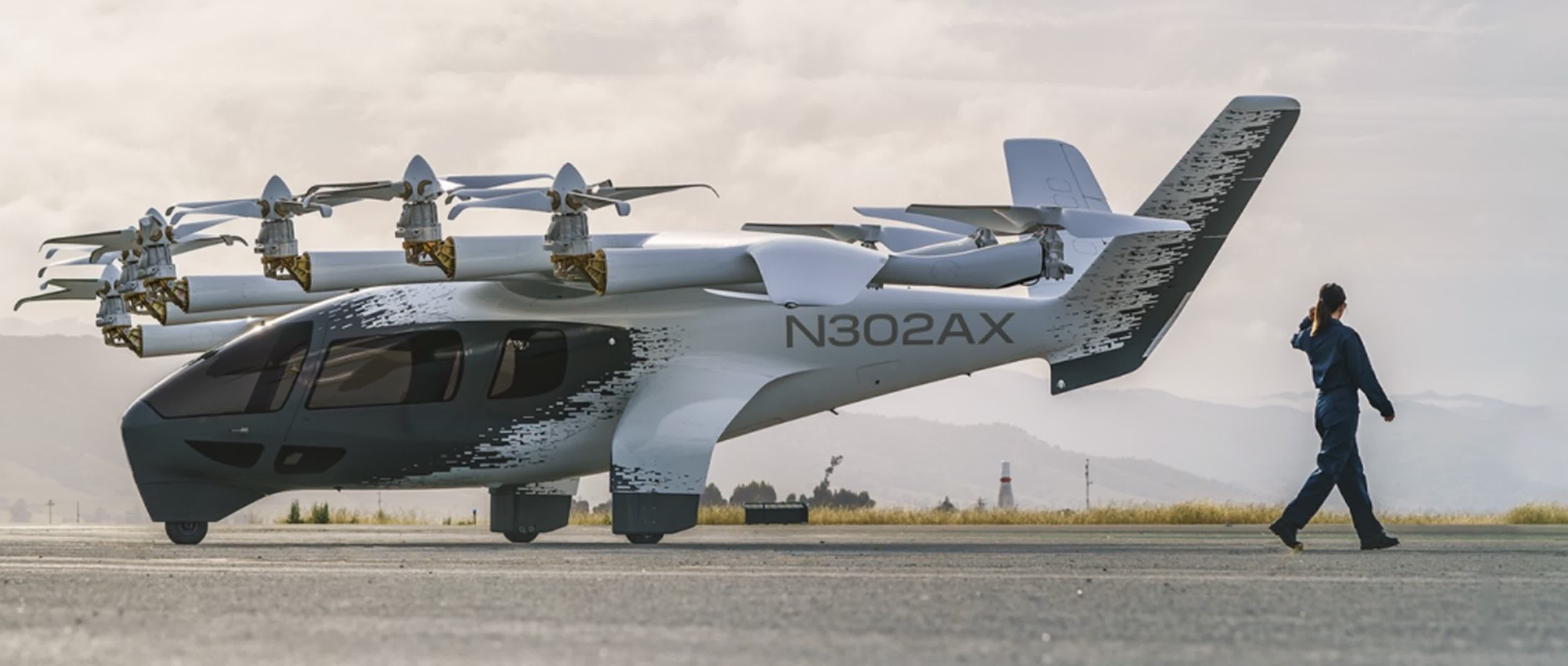In a nutshell: The electric vertical takeoff and landing market offers a dream concept for many travelers: a short commute to an airport that avoids congested ground traffic and is less noisy and more environmentally friendly than a helicopter ride. The market is expected to be worth $57 billion by 2035 and has attracted a number of both pure-play startups and established conglomerates. Many of these companies are forming relationships with airlines interested in offering their customers this service.
The latest airline to move into this space is Southwest Airlines, partnering with eVTOL manufacturer Archer Aviation. The two have signed a memorandum of understanding to develop operational concepts for electric air taxi networks. The collaboration aims to integrate Archer's eVTOL aircraft, specifically the Archer Midnight, into Southwest's operations in California.
Midnight is designed to fly up to 100 miles but is optimized for short flights of roughly 20 miles. It can carry four passengers and one pilot along with their luggage, and has an expected charge time of 12 minutes between flights.
The goal of this and similar agreements is to replace 60-to-90-minute car commutes with 10-to-20-minute electric air taxi flights, avoiding ground traffic.
This is not the first eVTOL tie-up with a major airline; last year, Archer unveiled a plan with United Airlines to start an air taxi service in Chicago in 2025. However, it is a significant advance given Southwest's broad reach across the US.
Archer and Signature Aviation signed a memorandum of understanding last month to collaborate on electrifying Signature's network of over 200 airport terminals worldwide. The partnership gives Archer access to takeoff and landing sites in major metropolitan areas across the US and globally, including New York, Los Angeles, the San Francisco Bay Area, and Texas.
Initial launch locations are planned to be electrified as early as 2025, with further expansion across Signature Aviation's global network as Archer's aircraft availability increases.
The list of eVTOL manufacturers has grown rapidly in recent years. Joby Aviation, a pure-play developer, announced last year it would build its first serial production facility on a 140-acre site at Dayton International Airport.
Europe also has a robust community of eVTOL companies, including Lilium, a German company developing the Lilium Jet for intercity regional missions, with plans to launch air taxi flights in southern France; Vertical Aerospace, a UK-based company that has designed the VX4 eVTOL for airport transfers; and Volocopter, a German manufacturer developing the VoloCity aircraft that hopes to offer flights at the 2024 Paris Olympics.
Giant aerospace companies like Boeing, Airbus, and Embraer are also exploring or investing in this concept.
The benefits of this form of transportation include reduced emissions and, at 45dBA, less noise. According to Archer, this is almost 1,000 times quieter than a helicopter, while also having a similar cruise speed of about 150 miles per hour.
